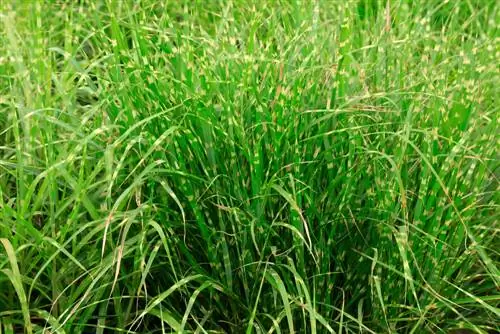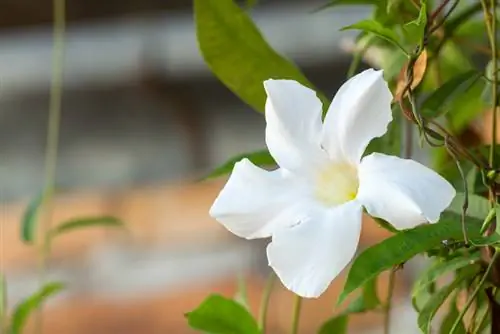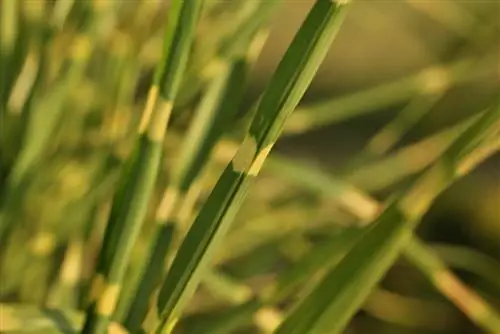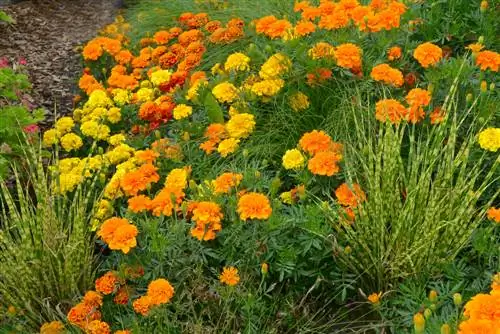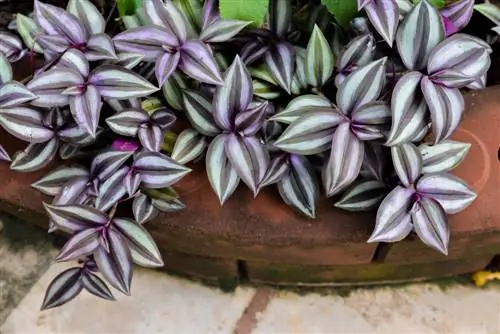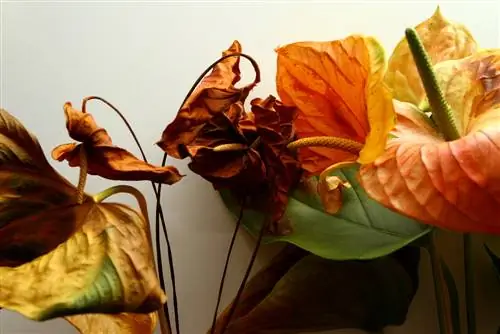- Author admin leonars@hobbygardeners.com.
- Public 2023-12-16 16:46.
- Last modified 2025-01-23 11:21.
With its striking stripes, zebra grass is a very special eye-catcher in the garden. White spots on the green stalks form a very attractive, exotic appearance. On top of that, the Chinese plant is also very undemanding, but care errors still lead to the grass turning brown. With the tips in this article you will quickly identify the causes and also know how to take specific action against them.
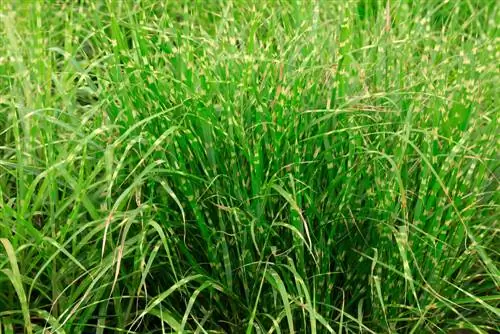
Why is my zebra grass turning brown and what can I do about it?
Zebra grass turns brown if it receives the wrong substrate, incorrect watering behavior or incorrect fertilizer application. To counteract this, you should enrich the substrate with humus, avoid waterlogging, water regularly and switch to organic fertilizers.
Causes
- natural leaf shedding
- wrong substrate
- incorrect watering behavior
- incorrect fertilizer application
Help
Natural leaf shedding
It is completely normal that the zebra grass sheds its leaves at the end of September and beginning of October. Before that, the stalks turn brown. Next spring the plant will sprout again on its own.
Wrong substrate
In terms of site conditions, zebra grass is very undemanding. It also thrives in the shade, although a little slower than in full sun. However, in locations that are too dark, the attractive stripes are missing. However, the leaves do not turn brown. It's different with the wrong substrate. The following properties of the earth are appropriate:
- moist
- permeable
- acidic to alkaline (pH 5-7.5)
- loamy and sandy
- nutrient-rich
If the stalks of your zebra grass turn brown, it is worth trying to enrich the substrate with humus.
Incorrect watering
Be sure to check whether waterlogging is forming underground. This leads to root rot and causes the zebragrass to die. Potted plants are particularly at risk. Long dry periods are also not tolerated well. Regular watering, especially on hot summer days, is therefore mandatory.
Incorrect fertilization
Zebra grass reacts very sensitively to excessively high s alt concentrations in the soil. You are probably using the wrong fertilizer. It's best to switch to organic materials such as compost (€459.00 on Amazon). Actually, adding fertilizer is not necessary at all. Only in some cases does it increase growth. For example, if the soil is too poor in nutrients.

